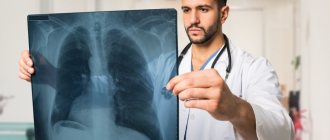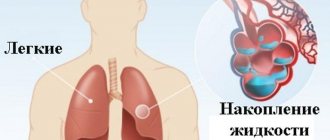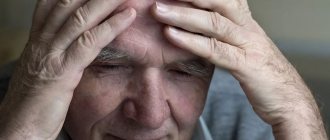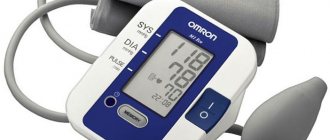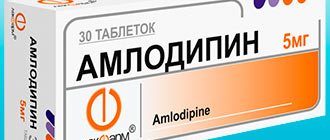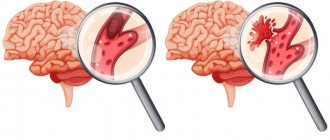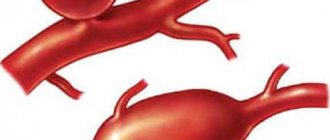In neurological practice, dizziness (vertigo) is one of the most common complaints of patients. For older people, the feeling of disorientation in space can become a serious problem: the risk of falls and injuries increases, the condition is often accompanied by phobias, depression, and deterioration of auditory and visual functions.
You can get rid of this unpleasant syndrome at any age. To do this, it is important to establish the causes of dizziness, especially since sometimes they turn out to be dangerous diseases that can be fatal. Complex diagnosis and timely treatment can help avoid severe complications.
How does dizziness manifest?
We recommend
“How to care for a bedridden elderly person” More details
During dizziness, it seems to a person that not only his head is spinning, but that he himself is spinning, or that the objects around him are spinning. When dizziness occurs in older people, nausea may occur, a feeling similar to intoxication and other unpleasant symptoms may occur, including loss of consciousness and falling.
Old people begin to blur before their eyes not only from external influences, but also due to the occurrence of diseases. Perhaps any person over the age of sixty has at least once felt suddenly dizzy. If this happens regularly, it becomes a serious problem that interferes with a normal life. In order to properly deal with the disease, it is important to determine the causes of its occurrence.
Causes of dizziness in older people
Why might an elderly person feel dizzy? Most often, this is an age-related manifestation, caused by problems with the vestibular apparatus, neurological abnormalities, vascular diseases, and damage to nerve cells. Here are some of the most common causes of dizziness in older people:
- Consequences of injury.
- Sudden changes in pressure.
- Chondrosis of the cervical spine.
- Brain tumor.
- Diabetes.
- Arrhythmia.
- Ischemic disease.
- Damage to the eardrum.
- Meniere's disease (fluid accumulation in the inner ear).
- Benign tumor of the auditory nerve (neurinoma).
- Depression, fatigue, lack of sleep.
But the main thing that causes dizziness in older people is:
1. For 30–35% of cases - BPPV (benign positional paroxysmal vertigo). In older people, this is usually a consequence of degenerative changes in the area of the inner ear. The receptors of the vestibular apparatus are irritated by microscopic deposits (otoliths), resulting in dizziness. More often, older people feel such symptoms when they wake up in the morning.
2. Diseases of the cerebral vessels, so-called cerebrovascular diseases, and atherosclerosis. A characteristic manifestation of these ailments is insufficient blood supply to the brain due to partial damage to blood vessels. This is a very dangerous condition, and dizziness with it is the most harmless symptom.
3. Poor blood circulation in the brain (stroke). According to statistics, stroke occurs in 450 thousand people in the world every day, and over 80% of them are old people. One of the manifestations of a stroke is dizziness, which can recur in a person even after undergoing a course of treatment.
4. Drug abuse (polypharmacy). Taking a large number of drugs at the same time increases the risk of adverse symptoms. It is impossible to list at once all the pills that cause dizziness in older people. Typically these are heart medications, blood pressure medications, painkillers (analgesics), antibiotics, beta blockers, diuretics, non-steroidal anti-inflammatory drugs, tranquilizers and antidepressants, sleeping pills, anti-seizure medications.
We recommend
“Lonely elderly people: how to help them” More details
5. Dizziness in elderly people with normal blood pressure is rare; rather, the cause of mild weakness and faintness is too high or too low blood pressure.
6. Weakened (due to old age) vestibular apparatus. This can cause not only a feeling of unsteadiness, but also dizziness in older people.
7. There are a number of concomitant diseases for which you have to take a large number of medications (diabetes mellitus, Alzheimer's and Parkinson's disease). Then the cause of dizziness in the elderly can be both medications and the disease itself.
8. Many older people have a very difficult time psychologically and emotionally experiencing the changes in the body that come with age. They are afraid of losing consciousness or falling if they suddenly feel dizzy. Attacks of anxiety and even panic can cause so-called psychogenic dizziness, and with them comes chills, arrhythmia, general weakness, lack of air and faintness.
A serious problem that requires treatment is severe dizziness in older people with a weak vestibular system. Objects seem to be moving in a circle; a person cannot clearly perceive their outlines. This is a common occurrence in older people with hypertension. There are also other symptoms:
- spots before the eyes;
- feeling of blindness;
- feeling that the head has become heavy;
- feeling as before loss of consciousness;
- weak legs and arms, apathetic state.
Sometimes isolated manifestations of such symptoms occur, then this most likely means that the person is simply overtired. After rest, the unpleasant feeling will pass.
However, such signs should not be ignored if they occur after a stroke or, for example, during menopause. This has serious health consequences. An elderly person may become frightened during an attack, faint, or injure himself - all this is very unsafe.
Even one of the listed symptoms is a reason to immediately consult a doctor. The reasons for poor health must be found out. Let a therapist, endocrinologist, or neurologist examine you. The process can be complex and lengthy; you will have to examine the central nervous system and other organs and take the necessary tests.
Recommended articles on this topic:
- Boarding home for the elderly: features and rules of choice
- Low blood pressure in older people: causes, symptoms and treatment
- Health of the elderly: old age is not a problem
What to do
If a pre-fainting state occurs one-time for objective reasons (stuffiness, heatstroke), it does not require medical intervention. It is enough to sit or lay the person down, move him to the shade, loosen the belt and collar, and give him a drink of cool water or sweet tea. When breathing is restored, the pulse returns to normal, the face acquires a normal color, and the danger of fainting disappears. In other cases, consultation with a neurologist is required. Based on the collected data, the specialist prescribes an examination and develops a treatment strategy, preventing the development of serious pathologies.
First aid for severe dizziness in an elderly person
Here's what to do if there are complaints of weakness and dizziness in older people:
- put the person horizontally as soon as possible;
- ensure air flow into the room;
- eliminate possible sources of noise: loud music, radio, TV;
- remove too bright light (but there should be enough lighting).
If the person is dizzy but not vomiting, give the person water or tea with sugar. You can wipe your face with a damp cloth (not too cold). Atropine (0.1% solution, 8–10 drops) helps well. If the patient's condition does not improve within an hour, call an ambulance.
Often, older people immediately experience dizziness and nausea, and black spots appear before the eyes. At the same time, the person turns pale, body temperature drops. Such symptoms can be heralds of a hypertensive crisis, and if you do not quickly call an ambulance, it will lead to myocardial infarction.
It is also worth paying attention if a person experiences speech impairment, numbness in half of the face, headaches, or fainting. All these are signs of a cerebral stroke, and if doctors are not called urgently, the life of the pensioner will be threatened.
We recommend
“Interests of older people: how to improve the life of a pensioner” Read more
What to do if you feel faint: first aid
All first aid techniques during a pre-fainting state are aimed at preventing the onset of full-fledged fainting. Let's look at all the necessary steps in detail.
- The first is to provide oxygen access to the room, and, if possible, take a comfortable position. Remove all objects that put pressure on the chest and neck (scarf, tight collar, tie). To better saturate the blood with oxygen, it is necessary to take rhythmic inhalations and exhalations. If the breathing process is difficult, ammonia will help. A sweet, warm drink in the form of tea also helps relieve an attack. If you suspect evaporation of harmful substances in the room or a gas leak, you should quickly leave the building and go outside.
- After the crisis has passed, the body must be provided with the required amount of fluid, which involves consuming at least 2.5 liters of water per day. Taking drugs such as Asparkam and Panangin will normalize the balance of electrolytes in the blood and ensure normal blood supply to all organs. And, of course, it is necessary to establish the cause of the pathology.
- If you have chronic fatigue syndrome, you must take the necessary vitamins and minerals and ensure all conditions for normal work and rest. In case of hypotension or anemia, the cause of this condition should be immediately determined. Since some pathologies require immediate medical attention.
Everything we talked about in this article needs to be known and remembered by every person. Because presyncope attacks develop suddenly, which can pose a serious threat to life. After all, at this moment a person can cross the roadway or drive a car. The most important thing when providing first aid to yourself or your loved ones is to prevent full-blown fainting from developing.
Primary appointment with a neurologist: 1850 RUR.
Sign up Online 5% discount when registering from the site
Diagnosis of dizziness in older people
The success of treating dizziness in older people depends on correct diagnosis. Often the cause of dizziness is changes in the functioning of the brain. In this case, it is necessary to conduct appropriate research. Surveys of this kind are carried out according to the following scheme:
- Determine what type of dizziness is.
- Find the reasons for its appearance.
- The presence of neurological or ENT symptoms is determined.
- Additional methods are used to study the patient’s condition, depending on what pathologies were identified during the examination and interview.
1. History taking and external examination.
First you need to make sure that you really have dizziness. Old people often mistake one condition for another and may mistake nausea or blurred vision for dizziness.
An examination is very important; you need to take a closer look at how the person’s coordination of movements is, and whether the reflexes work normally. You should understand why weakness and dizziness occur in older people, what factors influence the development of the disease, and how it progresses.
If the head begins to feel dizzy gradually, this is classified as dizziness of central origin, and if suddenly and quickly, this is classified as peripheral. The latter are characterized by tinnitus and poor hearing (these symptoms are called local disorders). Central vertigo is accompanied by damage to the cortex and brain stem. A general serious condition with frequently recurring vomiting are signs of vestibular disorders.
To identify the diagnosis, the patient is asked to change the position of the head, for example, tilt it to the left or to the right. If the head becomes more dizzy when bending over, then we are talking (most often) about benign dizziness in older people, the cause of which is a weak vestibular apparatus.
Through a survey, they will find out what autoimmune or inflammatory diseases, intoxications (medicines or alcohol), and head injuries have been suffered. Check to see if the person being examined has nystagmus. Nystagmus is an oscillatory movement of the eyes independent of the patient. They study the spontaneous form of nystagmus (caused by gaze), when a person first looks straight ahead and then moves his eyes to the side.
Another diagnostic method is the Hallpike test. The patient is placed on the couch in a sitting position, he looks to the right, turning his head about 45 degrees. Holding the person by the shoulders, he is asked to quickly lie on his back so that his head hangs off the couch. The same is repeated by turning the head to the left.
An otolaryngologist examines the outer, middle, inner ear, eardrum, removes wax plugs, checks for infections (acute or chronic), and finds the consequences of injuries.
2. Laboratory and instrumental diagnostics.
CT and MRI are prescribed to ensure the absence of neoplasms and demyelinating processes. Structural pathologies (congenital or acquired) are identified. It may be necessary to take an X-ray of the skull (if there is an assumption that the person has new or old fractures).
We recommend
“Adaptation of older people: in modern society and boarding homes” Read more
The cause of weakness and dizziness in older people may be vascular dysfunction. In case of such suspicions, Doppler ultrasound of the cervical and cephalic great vessels is performed.
A complete blood test will help rule out the possibility of infection. If a pathogen is found, antibodies are determined for it.
If there is concomitant hearing impairment, the patient undergoes pure-tone audiometry. A person drinks Glycerol, after which one can notice better speech perception and recognition of low-frequency sounds. If such signs are found, then we are talking about Meniere's disease, which, as a rule, is accompanied by dizziness.
Dizziness against a background of apathy, hypochondria, accompanied by a decrease in mental activity and causeless painful health, indicate that the patient has a diagnosis of a psychiatric or neurological nature.
Airsickness
Air sickness occurs when the vestibular system is disrupted. The pathology manifests itself in the form of dizziness, headache, muscle weakness, drowsiness, nausea, vomiting, drowsiness, and weakness. Patients may also notice blurred vision, changes in taste, dry mouth, and increased sweating.
A pathological process occurs when the brain receives conflicting signals. It turns out that, on the one hand, you are sitting still, but on the other, you are still moving. Visual analyzers see a changing picture, while your body remains in place.
Let's talk about effective tips that will help reduce the manifestations of air sickness:
- before planting, do not eat much;
- try not to set yourself up negatively;
- before the flight, drink Bonine or Dramamine;
- try acupressure;
- do not make sudden movements, try to sit in the chair for as long as possible;
- You should not read on the plane, it will only worsen the symptoms of air sickness;
- places near the wing are considered the most stable and there is less shaking;
- Chew mint gum.
Flying on an airplane can cause dizziness, nausea and weakness
Anti-dizziness medicine for older people
What drug treatment is used for dizziness in older people? Since the diagnosis is so common, there are a number of drugs that make attacks less frequent and have a beneficial effect on the brain. These are so-called nootropics, that is, drugs that accelerate neural processes in the brain. They are excellent for helping with memory loss, complications of mental activity, sclerosis and dementia. In addition, they can be prescribed to improve blood circulation, to combat prolonged fatigue, insomnia and depression.
Nootropics have a wide spectrum of action and are completely safe for the body. They can be given to children and prescribed to absolutely healthy people for whom maximum concentration at work is important. But you should not try to choose a drug for yourself; let a doctor prescribe it. The main nootropics are Glycine, Phenotropil, Piracetam, Cinnarizine, Bilobil.
We recommend
“Boarding home for the elderly: how to place an elderly relative there” More details
Any of these medications improves blood circulation in the vessels of the brain, strengthens the walls of blood vessels, fights hypoxia, and establishes neural connections in the central nervous system. Some drugs have a sedative effect. Medicines in this group improve cellular metabolism and activate energy processes inside cells. This increases the ability to perceive and remember information and learn. Nootropics are used to treat dizziness in older people because they improve mood and sleep, and make a person more active.
Here is a more detailed description of some nootropics:
- Piracetam is on the first step in popularity. Many people experience sleep disturbances when taking the drug, so it is not prescribed for use in the evening, only before lunch.
- Cinnarizine. It is prescribed not only as a nootropic, but also as an anti-allergy remedy. It should be borne in mind that the drug causes drowsiness, dry mouth, and disruption of the gastrointestinal tract.
- Glycine is good because it does not cause adverse reactions. A very popular drug among students, especially during study periods. The main component is gamma-aminobutyric acid, which accelerates brain function and is important for metabolic processes.
- Phenibut. Its main component is the same gamma-aminobutyric acid. This medicine may cause you to feel sleepy, especially when you first start taking it.
How else to treat dizziness in older people? Nootropics based on herbal components are also used:
- Vinpocetine. The basic component is the small periwinkle. It has a beneficial effect on brain function, improves blood circulation in areas of blood vessels susceptible to ischemia (relaxes their walls). Helps lower blood pressure.
- Bilobil. The main herbal component is ginkgo biloba. Supplies the brain with oxygen and glucose, making blood vessels more resilient in case of oxygen deficiency. Improves attentiveness, memory and learning abilities. Has a weakening effect on numbness of the limbs.
All of the above remedies and others like them should be taken for at least three months. Only after a month will the first changes be noticeable. The frequency of administration is usually one to three times a day. The treatment regimen must be prescribed by a doctor.
Treatment of dizziness in older people with folk remedies
Along with drug treatment, it is permissible to use traditional medicine recipes. It is better to consult a doctor first so that the effect does not turn out to be the opposite. Some simple remedies:
- Sage. Brew 4 tbsp in 0.5 liters of boiling water. l. sage flowers. Leave for half an hour, you can mix with honey. Drink before meals. The decoction is a good tonic.
- Common parsley. Grind the seeds of the plant in a coffee grinder, brew 1 tsp in a glass of boiling water. crushed mass, leave overnight. In the morning, strain and take four times a day in equal parts, before meals. It stops dizziness well in older people.
- A collection of peppermint leaves, lemon balm, linden flowers and mistletoe. The herbs need to be brewed with boiling water and allowed to brew. It helps well with a weakened vestibular apparatus.
- Red clover. Brew 1 tsp in half a glass of boiling water. dried flowers, let it brew. Take 50 ml twice a day 40 minutes before meals. Helps cleanse the walls of blood vessels, activates life processes, and reduces dizziness.
- Elecampane root. Brew a pinch of crushed root in a glass of boiling water, let it brew for half an hour and strain. Take 4 times a day in equal parts. Tones, destroys infections and parasites, has a beneficial effect on the vestibular system and stops dizziness.
- Simple kelp (sea kale). Eat 1 tsp once a day. dried plant with water. Strengthens the immune system, helps cleanse toxins, normalizes the central nervous system, and stops dizziness.
We recommend
“Centers for pensioners: what they are and how to get there” Read more
- Veronica grass. Brew 1 tbsp in 250 ml boiling water. l. dried plant, infuse. Take the infusion warm, 80-100 ml before meals. Acts as a sedative and relieves dizziness.
- Onion. Scroll it through a meat grinder. The dizziness goes away if you breathe over the resulting mush. Mix chopped onion and honey in a glass jar in equal parts and leave in a cool place for 5 days. The remedy stops severe dizziness in older people and gives strength.
Basically, soothing herbal decoctions are used as herbal remedies:
- Chamomile tea with mint. Brew a tablespoon of dried herbs in a glass of boiling water and strain after 15 minutes. If you are not allergic to honey, you can add one teaspoon to your tea.
- Calming drink. Brew chamomile, mint and valerian (one teaspoon each) in 0.5 liters of boiling water and leave in a thermos for 12 hours. The best option is to prepare the decoction overnight, strain it in the morning, add honey and apple cider vinegar (one teaspoon each). Drink before meals.
- Dried ginger root is an excellent folk remedy for treating dizziness in the elderly. The root is taken in powder form three times daily before meals. Dry, powdered garlic is also a good tonic. You can take both remedies at once.
- Hawthorn relieves spasms and has a strengthening effect on the walls of blood vessels. A self-prepared infusion is much more effective than a pharmaceutical alcohol preparation. To prepare, brew one tablespoon of dry herb in 200 ml of boiling water and leave for half an hour.
- Dizziness stops after two weeks of taking plantain infusion.
You can also prepare tinctures:
- From garlic. Pour half a liter of alcohol into 300 g of garlic in a glass container and leave in a cool place for 15 days. Method of administration: add 20 drops of tincture to half a glass of milk. The product cleanses the body of toxins, fights infections, improves the functioning of the heart muscle, and relieves dizziness.
- From chestnut. Crushed chestnut buds are poured with half a liter of Cahors (preheated to 70 degrees) and kept for 15 minutes in a water bath. When it cools down, add two tablespoons of honey and a little vanilla powder. Take 50 ml before meals. Improves general condition and activates the activity of brain vessels.
Juice treatment:
- Carrot. Drink 0.5–1 glass three times a day before meals. Strengthens the immune system, relieves dizziness. An excellent remedy is a mixture of carrot, pomegranate and red beet juices (in a ratio of 3:2:2). Take the same way, 0.5–1 cup three times a day before meals. Improves the overall well-being of older people.
- Pineapple. Pineapple is a very strong antioxidant, rich in minerals and vitamins. Its juice rejuvenates the body and has a strengthening effect on the walls of blood vessels. Relieves dizziness in older people and is good for anemia.
- Juice from salad. Drink 25 ml 4 times a day if dizziness occurs due to heart failure or disorders of the central nervous system.
- Juice of young zucchini (possibly with the addition of carrot). It is taken in cases where dizziness occurs due to cardiac problems or high blood pressure.
VSD in faces
This page contains excerpts from patient histories, covering the main complaints with which people turn to us for help. This is done with the goal of showing how different and “complex” the symptoms of vegetative-vascular dystonia can be. And how closely it is sometimes “fused” with disturbances in the functioning of organs and systems. How it “disguises” itself as “heart”, “pulmonary”, “stomach”, “gynecological” and even “psychiatric” problems that people have to live with for years...
To learn more
Other treatments for dizziness in older people
Dizziness in older people is best treated by a combination of medications, folk remedies and the following methods:
- Physiotherapy. Properly selected exercises strengthen the spine and stimulate the functioning of blood vessels. Regular exercise can sometimes give more significant results than taking medications.
We recommend
“Gymnastics for the elderly: the best exercises for various diseases” Read more
- Physiotherapy. Modern technologies in this area are multifaceted; water, sound, light, magnetic, and laser treatments are available. Regular implementation of these procedures has a very beneficial effect on the nervous system.
- Reflexology, in particular acupuncture. It normalizes the functioning of the central nervous system, relaxes muscles and activates blood circulation.
- Psychotherapy. The likelihood of dizziness in older people is significantly reduced if measures are taken to relieve nervous tension and anxiety.
Entering into old age will be much easier if you take care of your health in advance. The physical capabilities of the body directly depend on compliance with the daily routine, proper nutrition, intensity of exercise, and abuse of bad habits. Think about what is easier - to prevent the disease or to treat it later? Provide your body with normal functioning, do not neglect examinations if you are already about sixty. Be active, walk more, look at the world positively. Then you definitely won’t have to deal with bouts of dizziness.
Arterial hypertension
Recently, high blood pressure is increasingly being diagnosed in young men. Most often this applies to those whose work involves intense physical or mental stress. A sedentary lifestyle, smoking, alcoholism, unhealthy diet - all this also increases the risk of arterial hypertension.
Symptoms of hypertension in men have a number of their own characteristics:
- pressing or stabbing pain in the heart that is not relieved by Nitroglycerin;
- pressing pain in the occipital region, which intensifies when bending and turning;
- swelling of the face and legs;
- blurred vision, flashing black dots;
- shortness of breath that appears even at rest;
- chills;
- facial hyperemia;
- noise in ears;
- profuse sweating;
- trembling in the arms and legs;
- anxiety, fear.
The fight against hypertension includes drug therapy, dietary nutrition, as well as adherence to the correct work and rest schedule.

